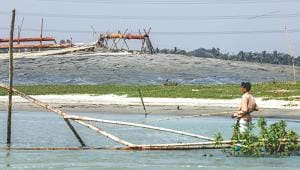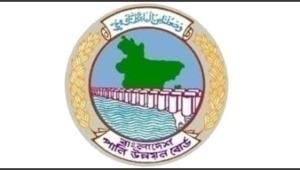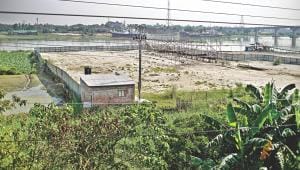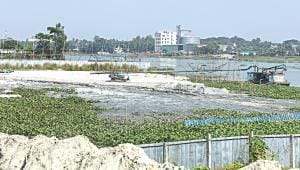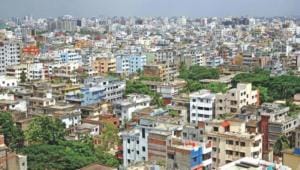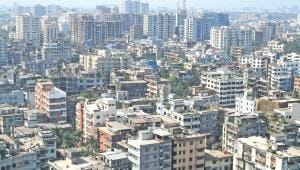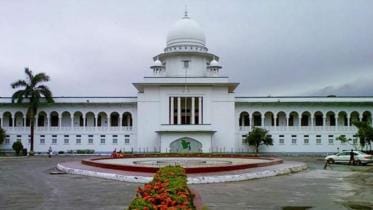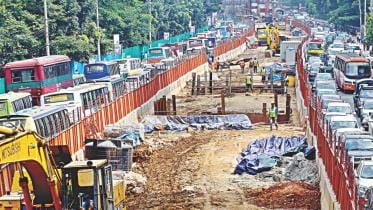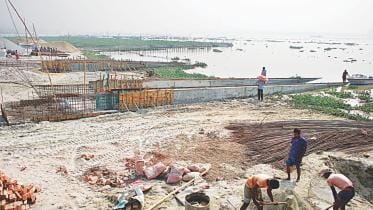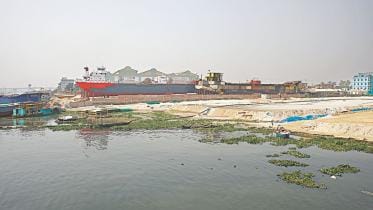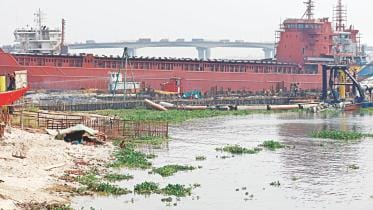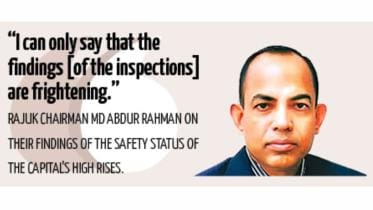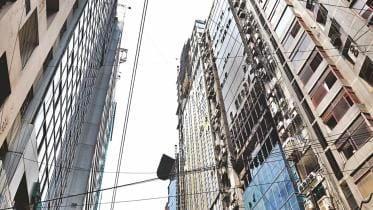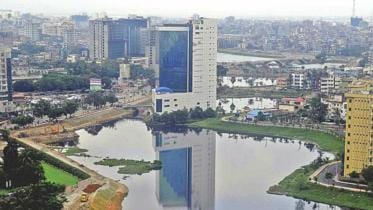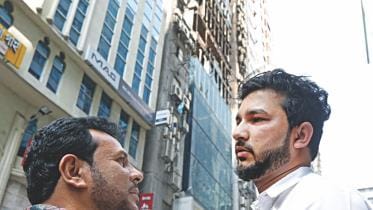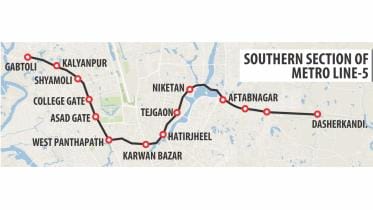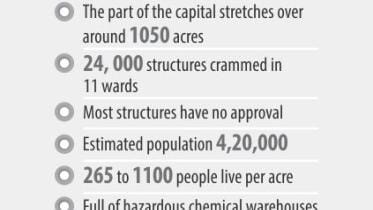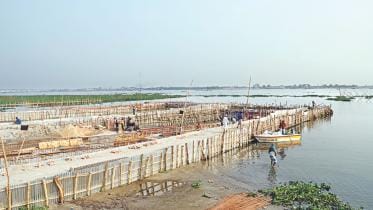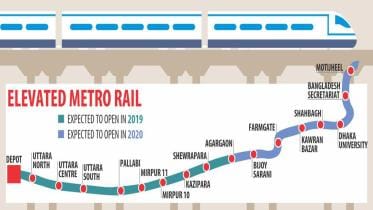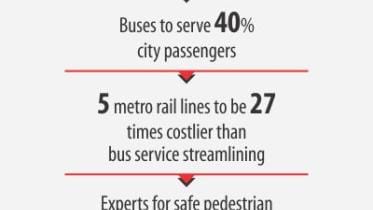Authorities’ inaction put rivers in peril
The deplorable conditions of the rivers around Dhaka city and elsewhere in the country due to encroachment and pollution are the result of inaction of the river custodians and their complicity with the grabbers for decades, National River Conservation Commission Chairman Muzibur Rahman Howlader has said.
21 September 2019, 18:00 PM
Holding Rajuk Accountable: Ministry failed to play its part
Repeated tragic deaths and loss of property in fire and building disasters in the capital could have been averted had the housing and public works ministry as the administrative authority held Rajuk duly accountable for its job, said serving and former top officials.
3 August 2019, 18:00 PM
River grabbing a criminal offence
All river grabbing and pollution are criminal offences, the highest court in the country has declared in the full text of a landmark judgment.
1 July 2019, 18:00 PM
City traffic in disorder
The metro rail construction work on 8km of the capital’s key thoroughfares has made the chaotic traffic even worse, largely because steps have not been taken for better use of the narrowed down streets, experts and officials said.
27 May 2019, 18:00 PM
Meghna grabber defies govt order
A private dockyard company has been building two slipways in the Meghna river in Munshiganj’s Gazaria even after the National River Commission asked the firm to stop its work and free the river.
19 May 2019, 18:00 PM
Freeing the Meghna from Grabbers: Act or get sued
The National River Conservation Commission has warned that it would take legal actions against at least a dozen government authorities for their inaction to free the Meghna from grabbers if they do not act within seven days.
18 May 2019, 18:00 PM
Ship-builder eating away Meghna
In an onslaught on the Meghna, a private ship-building company is constructing its shipyard’s slipways into the river at Meghnaghat in Sonargaon, but the river custodians are doing little to stop it.
9 May 2019, 18:00 PM
All in scary conditions
Building and fire safety conditions in all the 1,818 high rises under Rajuk’s jurisdiction are scary, its chairman Md Abdur Rahman said yesterday.
4 May 2019, 18:00 PM
Puzzle of 5 floors
While the 23-storey FR Tower on Kemal Ataturk Avenue has a foundation for 18 storeys, around a dozen other high rises on the same street are taller than permissible height but Rajuk has been silent about this all along, said government high officials.
4 May 2019, 18:00 PM
No plan, no coordination
Although Rajuk officials had no engineering plan to knock down the much-talked about BGMEA building on the capital's Begunbari canal, they went to the site yesterday heavily equipped with demolition machinery.
16 April 2019, 18:00 PM
FR Tower Building Plan: Rajuk violated own rules to approve it
Violating the then building rules, Rajuk in December 1996 approved an 18-storey high-rise in Banani, where the FR Tower stands today.
7 April 2019, 18:00 PM
Planning goes haywire
Rajuk is approving commercial buildings in the residential areas of Gulshan and Banani with virtually no height limits and experts are calling it illegal and a recipe for disaster.
1 April 2019, 18:00 PM
Nothing is right
The Rajuk came to know about 12 years ago that the Faruque-Rupayan Tower was built in violation of the approved plan, but it remained silent for all these years.
30 March 2019, 18:00 PM
Purbachal Project: CONCEPT lost on REVISIONS
Rajuk is set to turn land originally earmarked for education and environment preservation into commercial and business plots in its 6,227-acre Purbachal New Town project in the city's outskirts.
23 March 2019, 18:00 PM
Waste of water, way to disaster
The next world war will be over water. And Bangladesh appears to be most oblivious of all amidst the grim global forecast.
21 March 2019, 18:10 PM
Spending on metro must be justified
The money spent on an expensive project like metro rail must be justified by ensuring it provides quality and optimum service to the public, said the country director of Asian Development Bank (ADB).
3 March 2019, 18:00 PM
Old town sends out an SOS
Old Dhaka will remain vulnerable to disasters like the ones in Nimtoli and Chawkbazar unless it undergoes redevelopment, say urban planners.
21 February 2019, 18:00 PM
Meghna too not spared
Nothing seems to scare away the river grabbers.
Amid impassioned calls from the judiciary, environmentalists and the media to save the country's last surviving rivers, a private company is building two slipways in the Meghna river in Munshiganj.
8 February 2019, 18:00 PM
Integration the key
Once the much-hyped metro rail starts operation between Uttara north and Agargaon later this year, it will not bring a significant change in Dhaka city's transport service unless it is integrated with conventional transport modes, experts said.
3 February 2019, 18:00 PM
Bus easier, cheaper
Once built two decades from now, the five metro rail lines costing around $27.6 billion would serve only 11.5 percent of city passengers, said experts citing the capital's transport master plan.
2 February 2019, 18:00 PM



